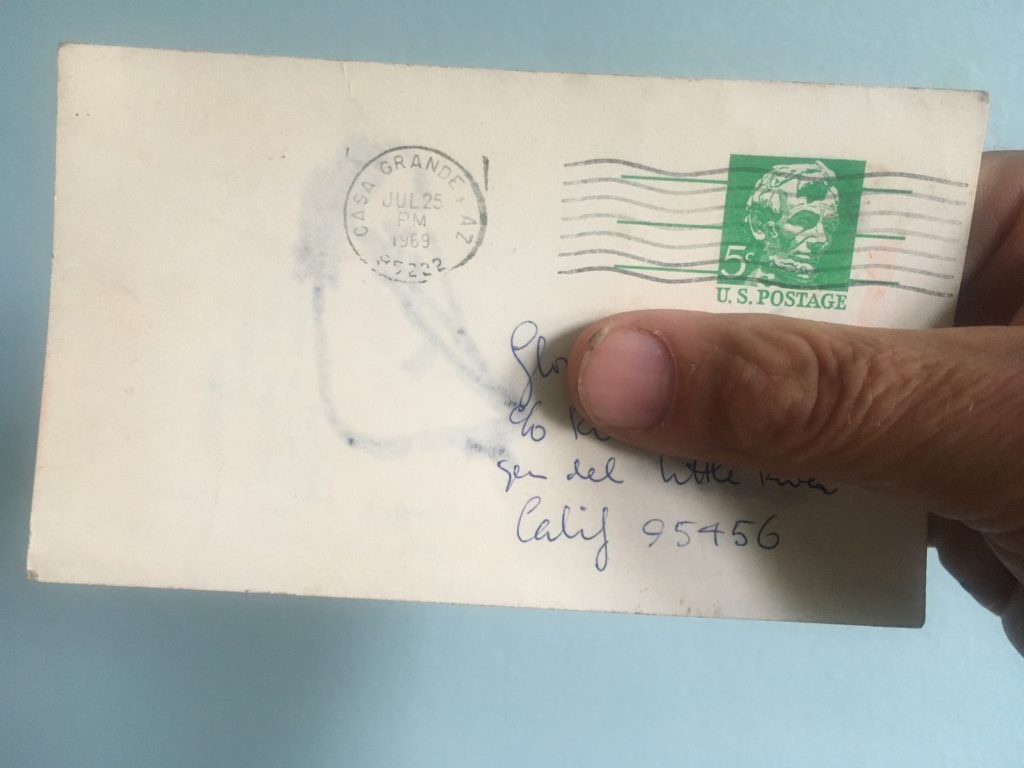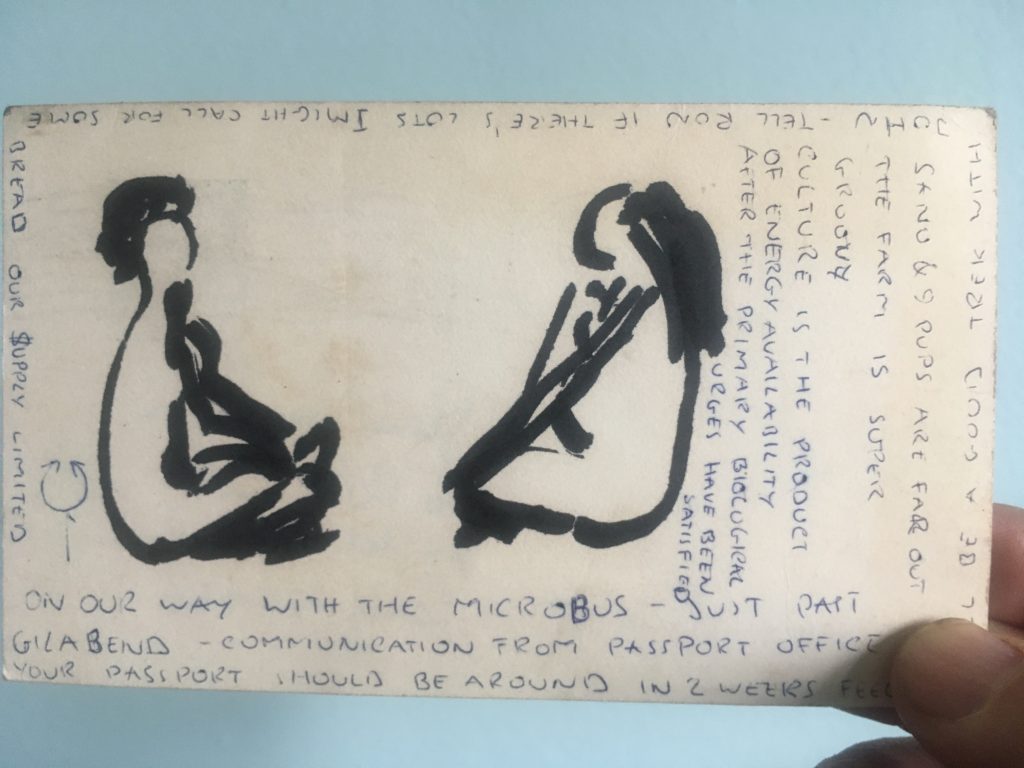
Years ago in the National Post I wrote a series about my childhood. My father helped me with the research. He produced photocopies of dozens of letters both by him and to him, during the period he spent in prison in California, in 1969, 1970 and 1971.
When my father died about two years ago, my siblings agreed that I could have a chest full of his papers. Paul, the chest revealed, kept hundreds of letters and drawings from his children. He also preserved a remarkable trove of letters written by himself, which the recipients apparently gave back to him over the years.
The chest that houses all this stuff is itself a work of art Paul built from slabs of western red cedar. Alas, the mice have found their way in. Now I need to read the stuff quickly before they eat it. One missive in particular caught my eye the other day.
It’s a postcard that Paul mailed on the afternoon of July 25, 1969, from Casa Grande, Arizona, to his girlfriend in Little River, California.
“On our way with the microbus,” Paul writes. “Just past Gila Bend.”
What fascinates me is the date. In April 1969 police in Fort Bragg, Calif., arrested Paul and charged him with attempting to blow up the model home of a lumber company. The police picked up my father and a friend with six molotov cocktails in their car. My father got out on bail, skipped his next court appearance, and ended up a wanted man.
July 25, 1969 was two weeks before police in California arrested Paul with his three children, including me, in the car. Paul told me that he spent the period between April and August 1969 running marijuana from Michoacan, Mexico, to Bellingham on the border of Canada, where he would hand it off to Canadian accomplices. The five cent postcard appears to chronicle one such trip: he notes Gila Bend, and mails the missive from about sixty miles west.
What’s striking is the carefree nature of the card, with a sketch of two figures sitting cross legged facing eachother – presumably my father’s artwork. He does mention business: “Feel it will be a good trek with John – tell Ron if there’s lots I might call for some bread our $upply limited.”

He mentions his doberman: “Sanu & 9 pups are far out. The farm is super groovy.” And he ends on a prosaic note: “Culture is the product of energy availability after the primary biological urges have been satisfied.”
Allow me to laugh bitterly about the card’s last line. I am trained as a journalist to never employ passive verbs, and to be wary of others who use the passive tense. My father inserts a passive verb here: “after the primary biological urges have been satisfied.” Satisfied by whom? He had left my mom when I was two, seven years earlier. My mom then struggled like hell to satisfy the primary biological urges of her three children, with no help from Paul. I guess he somehow satisfied his own primary biological urges (including with a 20-year-old girlfriend). With the rest of the available energy, he drew sketches in felt pen on nickel postcards.
So is this postcard, therefore, culture? In a way, yes. But Paul would have ensured the more permanent preservation of this cultural product had he used the energy available to build a mouse-proof cedar chest.

